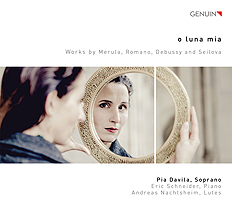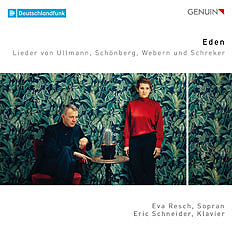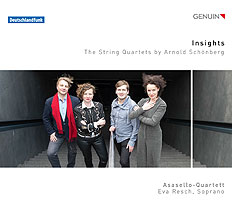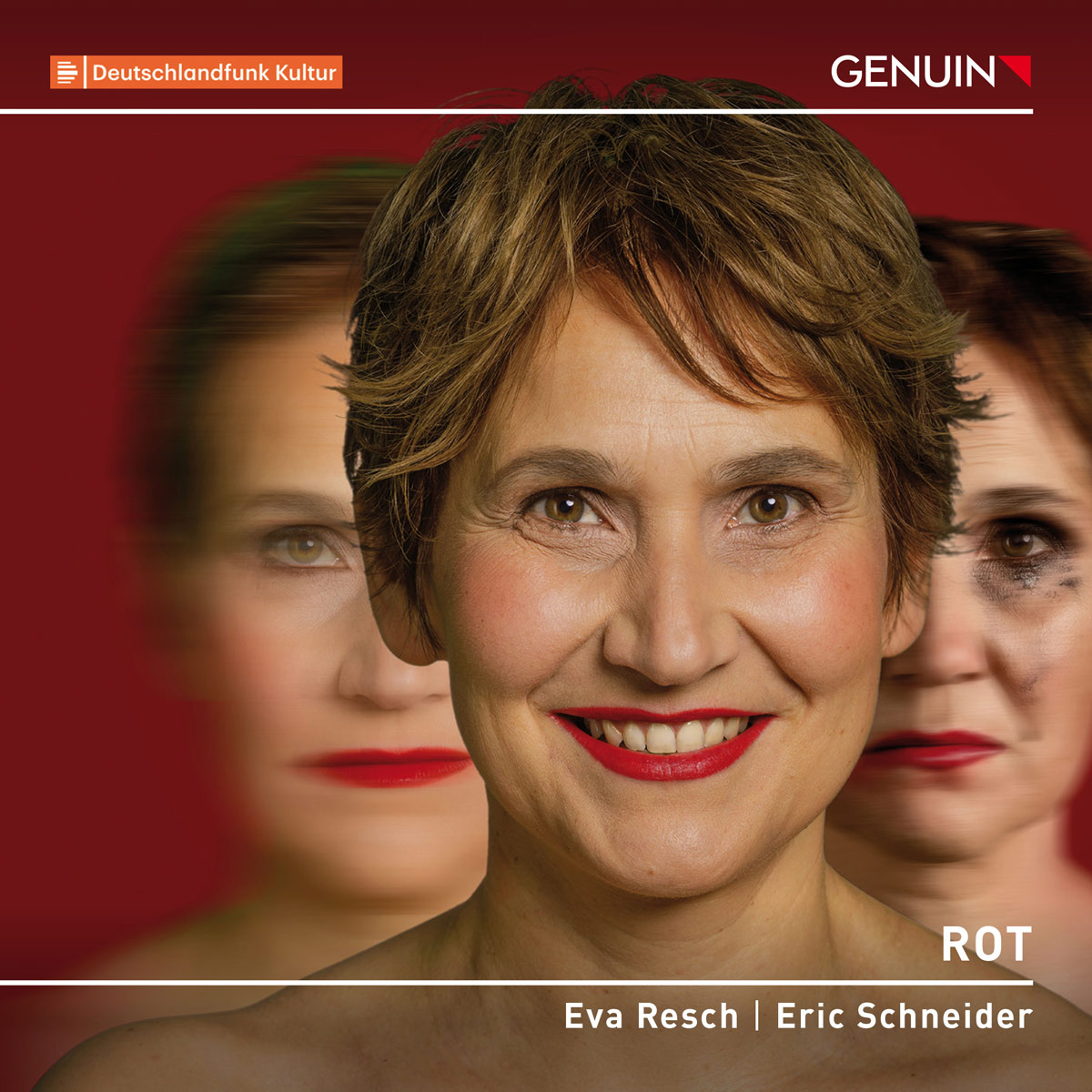Red
…rest gently!
Eric Schneider Piano
Tonmeister: Michael Silberhorn
Recording: Ackerscheune, Kulturstiftung Marienmünster, 2025
Audio Player
Tracklist
- Dmitri Schostakowitsch (1906–1975)
Satires (Pictures of the Past), Op. 109
No. 4: Missverständnis - Richard Strauss (1864–1949)
4 Lieder, Op. 36
No. 1: Das Rosenband - Max Reger (1873–1916)
4 Gesänge, Op. 88
No. 2: Stelldichein - Wolfgang Amadeus Mozart (1756–1791)
An Chloe, K. 524 - Hugo Wolf (1860–1903)
Spanisches Liederbuch
No. 40: Wer tat deinem Füßlein weh? - Arnold Schoenberg (1874–1951)
4 Lieder, Op. 2
No. 1: Erwartung - Wolfgang Rihm (1952–2024)
Das Rot
No. 1: Hochrot - Carl Loewe (1796–1869)
3 Balladen, Op. 1
No. 1: Edward - Franz Schubert (1797–1828)
Heidenröslein, Op. 3/3, D. 257 - Paul Dessau (1894–1979)
Lyrisches Intermezzo “Warum sind denn die Rosen so blaß?” - Franz Schubert
Der Jüngling auf dem Hügel, Op. 8/1, D. 702 - Paul Dessau
Den mutigen Achtzehn - Kurt Weill (1900–1950)
Berlin Requiem
No. 3: Marterl (Epitaph: Die rote Rosa) - Gustav Mahler (1860–1911)
Des Knaben Wunderhorn
No. 4: Wer hat dies Liedlein erdacht? - Kurt Weill
Nanna’s Lied - Kurt Weill
Berlin Requiem
No. 3: Marterl (Hier ruht die Jungfrau Johanna Beck) - Hugo Wolf
Mörike-Lieder
No. 44: Der Feuerreiter - Benjamin Britten (1913–1976)
Who are these children?, Op. 84
No. 11: The children - Hanns Eisler (1898–1962)
Die Heimkehr - Stefan Wolpe (1902–1972)
3 Lieder nach Gedichten von Erich Kästner
No. 1: Fantasie von übermorgen - Rainer Bielfeldt (*1964)
Rinnsteinprinzessin
![]()
Red is the color of love and of roses, but also of blood, anger, and shame. Soprano Eva Resch delves into the multifaceted meanings of this color in her new concept album for GENUIN. Together with her piano partner Eric Schneider, she interprets songs spanning from the Classical era to the present – from Wolfgang Amadeus Mozart to Wolfgang Rihm. With her versatile voice, she traces the subtlest shades of human emotion and creates expressive character portraits that range from jubilant ecstasy to the depths of sorrow.
 Show YouTube Video
Show YouTube Video
By clicking, you agree to the transfer of user data to YouTube.Show YouTube Video
By clicking, you agree to the transfer of user data to YouTube.For more information, please refer to our
privacy policy.
Opernwelt
“Resch and Schneider harmonize almost perfectly. Every musical gesture seems meticulously coordinated, and stylistically, the two artists are also on the same wavelength. [...] a sophisticated concept album.” Review by Virginie Germstein, issue 2/2026
Fono Forum - Critics' Survey 2025
“Song artistry formulated down to the finest detail.” Johannes Schmitz, Issue 1/2026
PIANIST
“Eva Resch's language is crystal clear, distinctly articulated and lively, complemented by Eric Schneider's fascinating piano playing. [...] The song repertoire thrives on change and versatility - an album worth listening to.” Review by Florestane Croche, issue 4/2025
Fono Forum
"Starting from her girlishly natural timbre, the singer also creates emotional depths with a wealth of nuances that draw the listener in. Articulation, phrasing, and dynamics are musically fulfilled down to the finest detail. [...] The album succeeds in allowing the multitude of styles to work for themselves while at the same time connecting them with a strong interpretative thread." Review by Johannes Schmitz, issue 10/2025
OpusKlassiek
"With her fresh soprano voice, for which no vocal or interpretative height is too high, and Schneider's equally imaginative piano accompaniment, this song recital is characterized by a brilliant palette of colors, overwhelming sophistication, and glowing commitment. [...] Both demonstrate great talent for voice leading and phrasing in these predominantly German-language art songs." Review by Aart van der Wal, September 15, 2025
Pizzicato
On September 15, 2025, an interview with Eva Resch was published in which she talks about her motivation as an artist, her stage experiences, new music, failure, and her latest album, ROT.
Orchestergraben
In an interview with Eva Resch about her new album and her life as an artist.
Deutschlandfunk Kultur
Mascha Drost presented Eva Resch's new album in the program Die besondere Aufnahme (The Special Recording) on September 6, 2025 and talks to the soprano about the different facets of the color red.
Fono Forum
Arnt Cobbers talks to Eva Resch about her reasons for making a CD about the color red. The answer can be read in the interview in issue 8-2025.
More albums featuring these artists

o luna mia
Works by Tarquinio Merula, Lorenzo Romano, Claude Debussy and Aigerim Seilova
Pia Davila Soprano
Eric Schneider Piano
Andreas Nachtsheim Lutes
GEN 21715 – 8.1.2021

Eden
Lieder by Ullmann, Schönberg, Webern and Schreker
Eva Resch Soprano
Eric Schneider Piano
GEN 19644 – 3.5.2019

Being Beauteous
Debussy and Britten set poems by
Verlaine and Rimbaud
Eva Resch Soprano
François Salignat Piano
GEN 16430 – 8.7.2016

Insights
The String Quartets by Arnold Schönberg
Asasello-Quartett String Quartet
Eva Resch Soprano
GEN 16429 – 8.7.2016

